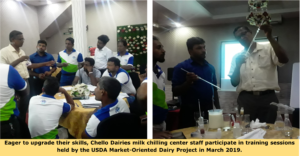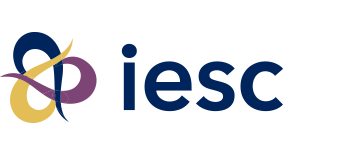Process Improvements Increase Milk Safety and Quality
Improving milk handling processes from farmers to milk chilling centers brings returns to medium-scale dairy processor in Sri Lanka
Chello Dairies began its journey in 1995 as a small-scale domestic enterprise manufacturing ice cream pops. Mr. Kapila Ruwan Bandara, a young entrepreneur and the company’s founder, had a mission: to provide consumers with superior taste and quality at an affordable price. Through hard work and a focus on quality, Mr. Bandara successfully expanded his business to manufacture other dairy products such as yogurts and curd. Within a decade he had established a manufacturing facility for mass production with a distribution network throughout Sri Lanka. The Chello Dairies brand became known for its tasty and high-quality products that presented a safe option for Sri Lankans at an affordable price.

Based in Ratnapura in the south-central region of Sri Lanka, Chello’s collection of raw milk from over 190 miles away and from over 2,000 small-scale dairy farmers posed safety and quality challenges for the business. Chello recognized the need to improve upon how the milk was being collected, transported, and handled at the intermediate chilling centers before being transported to the processing facility via the chilled bulk tankers.
The USDA-funded Food for Progress Market-Oriented Dairy (MOD) project was offering training to processors wishing to improve the methods used to transfer dairy products from farms to milk chilling centers, and Chello requested to participate. Through MOD’s holistic training, Chello Dairies’ chilling center managers, staff, and transporters learned how to maintain the ideal milk quality standards, methods of milk quality testing, and how to properly maintain and repair factory equipment.
Following the training, Chello Dairies adopted new hygiene and management practices which helped them improve the quality of their milk. They invested in an electric centrifuge to check fat content, replacing the less accurate and slower process which was previously done by hand. The electric centrifuge also enabled Chello Dairies to provide more accurate compensation to their supplying farmers and reduce transfer losses between the farmers and the factory. The Chello Dairies milk chilling centers also introduced the routine machine maintenance checklist proposed by MOD, which enabled them to minimize machine breakdowns and reduce downtime. They also formalized internal communication channels between the milk chilling centers and the head office, increasing operational efficiency. These new practices helped them save time and money, while preserving the quality of milk and reducing food waste.
“These measures really helped us reduce milk rejection by half, increase chilling efficiency by 10%, and improve machinery utilization to almost 100%. We also increased the benchmark for the alcohol negativity test [a quality test for dairy] from 68% to 72%, enabling us to deliver higher quality milk to the processing facility,” said Mr. Sameera Herath, the Procurement Manager for Chello Dairies. An additional benefit, especially relevant during the pandemic, is that milk chilling center staff are now equipped with a higher skillset to address basic maintenance issues on site without having to wait for help to arrive from the head office miles away. “This has translated into huge gains for us in maintaining quality standards while minimizing breakdowns and saving a lot of money. Overall, these improvements helped us continue to deliver quality product to the consumers,” added Mr. Sameera.
The Market-Oriented Dairy (MOD) Project in Sri Lanka is funded by the United States Department of Agriculture’s (USDA) ‘Food for Progress’ initiative and implemented by IESC. The project aims to double the milk production of participating dairy farmers and enable them to obtain a higher price premium for fresh milk through interventions primarily designed to enhance their technical knowledge and create an entrepreneurial, business-oriented mindset. The project also supports enterprises along the dairy value chain to meet the demands of the country’s dairy sector to catalyze a sustainable growth. The project’s sub-partners are Sarvodaya, University of Florida, and Global Dairy Platform.

